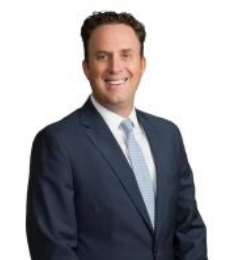I’m thrilled to announce that Bedard Law Group is the new sponsor for the Compliance Digest. Bedard Law Group, P.C. – Compliance Support – Defense Litigation – Nationwide Complaint Management – Turnkey Speech Analytics. And Our New BLG360 Program – Your Low Monthly Retainer Compliance Solution. Visit www.bedardlawgroup.com, email John H. Bedard, Jr., or call (678) 253-1871.

Every week, AccountsRecovery.net brings you the most important news in the industry. But, with compliance-related articles, context is king. That’s why the brightest and most knowledgable compliance experts are sought to offer their perspectives and insights into the most important news of the day. Read on to hear what the experts have to say this week.
Bill Introduced in Senate to Halt ‘Extraordinary’ Collection of Medical Debts During Pandemic
A bill has been introduced in the Senate that would prevent healthcare providers from taking “extraordinary” collection actions for up to 18 months after the bill becomes law as a means of protecting consumers during the coronavirus pandemic. More details here.

WHAT THIS MEANS, FROM STEFANIE JACKMAN OF BALLARD SPAHR: The introduction by Senate Democrats of the COVID-19 Medical Debt Collection Relief Act, S.4350, appears to be the most recent of several bills introduced into Congress during the pandemic period seeking to limit collection activities and impose additional restrictions. For example, Rep. Maxine Waters ]D-Calif.] also has introduced several bills seeking to expand the FDCPA’s protections to creditors and imposing additional collection restrictions during the pandemic. My sense is that none of these have any real chance of being enacted by the current Congress. For instance, if there really was traction for enacting S.4350, I would expect to see it being woven into the current pandemic relief bill negotiations but so far, it does not appear to part of those discussions at all. So most likely, we are not going to see this bill coming to fruition before Congress adjourns or likely, any time this year.
However, if the November election flips the Senate or the White House (or both) blue, I think this type of legislation offers a very clear and direct window into what very possibly could be enacted in 2021 as America continues to work to recover from the pandemic. Alternatively, in the event the election election does not result in any major changes inside the Beltway, look to see more consumer protection-oriented state regulators to implement state legislation patterned on such bills (meaning even more state-specific collection rules to follow, comply with, and manage).
THE COMPLIANCE DIGEST IS SPONSORED BY:

Bill Introduced in House That Again Allows Forbearance on All Debts
A bill has been introduced in the House of Representatives that would put limits on what creditors and debt collectors can do to try and recover unpaid debts when a national emergency has been declared and for a period of 120 days when the declaration is over. More details here.

WHAT THIS MEANS, FROM HEATH MORGAN OF MALONE FROST MARTIN: This bill is similar to others that have been proposed and the only real risk current to the industry is if it is attached as part of a compromise in Congress.
However, there are lessons that the industry can take from these proposed bills and they provide valuable insight on a different way of thinking. Most notably, proposed legislation like this emphasize the need for agencies, collection law firms, debt buyers, and creditors to incorporate an optics filter into their collection practices in this post COVID-19 world. Because there are collection practices out there that are legal, efficient, and may produce a return on the investment, but should not be implemented because of the optics of consumer harm and because they do not align with our values to work with and engage with consumers especially during this pandemic.
The best example of this was the media scrutiny in March and April that focused on debt collectors garnishing stimulus funds. I am still not aware of any instances of this actually happening, but that didn’t stop the story from being picked up nationally by multiple media sources. Our industry has become desensitized by years of new media stories about collection practices that often give an unbalanced story based on one or two anecdotes as opposed to national trends and data, but the difference post COVID-19 is that we face state regulatory entities such as governors, mayors, city councilmembers, state legislators, and even state supreme courts, who are empowered with emergency rule making authority to act emotionally on these media stories and propose legislation and rules that can greatly affect our ability to communicate and engage with consumers.
We’ve seen this play out over the past four months, and this proposed legislation is no different. Accordingly, it is incumbent on our industry to review proposed legislation like this to see what areas consumer advocates and others that oppose our industry identify as unfair or harmful practices, and incorporate filters into our own collection practices to make sure they are aligned with our company and industry values of working with consumers to resolve their debt.
Debt Buyer to Forgive $300k in Loans After Agreement with Mass. AG
The Attorney General of Massachusetts has reached a settlement with a debt buyer that will see it forgive about $300,000 in unpaid student loans and pay the Commonwealth $70,000 to be used to provide refunds to individuals who were misled by an online education company. More details here.

WHAT THIS MEANS, FROM CARLOS ORTIZ OF HINSHAW CULBERTSON: Caveat emptor – or, buyer beware, is one of the classic phrases that will remind all attorneys of law school. Here, that is a key take away from this report. Companies that are in the business of purchasing portfolios for the purpose of collecting on them should be very selective of the businesses with whom they partner. In addition, asset purchasers should insist on being provided with warranties and other contractual protections in order to insulate themselves from the consequences we see here. With the challenging financial times that we are presently in, it is likely that various attorneys general will be more actively involved in investigating and prosecuting asset purchasers who they deem to be involved with portfolios that were purchased from questionable businesses. Being careful with the portfolios that asset purchases acquire is of the upmost importance.
Consumer Groups Appeal FCC’s TCPA Ruling on P2P Texts
A number of consumer advocacy groups have asked the Federal Communications Commission to re-think a Declaratory Ruling related to interpreting how peer-to-peer messages are defined under the Telephone Consumer Protection Act. More details here.

WHAT THIS MEANS, FROM SCOTT GOLDSMITH OF FISHERBROYLES: The National Consumer Law Center (NCLC) is once again on the front lines to expand the reach of the Telephone Consumer Protection Act (TCPA). Most recently, NCLC, along with a few other consumer groups, appealed a recent Declaratory Ruling by the FCC’s Bureau of Consumer and Governmental Affairs (Bureau) addressing P2P texting platforms.
The Declaratory Ruling is significant because it clarified a few industry friendly points:
- A P2P texting platform generally does not qualify as an automatic telephone dialing system (ATDS) under the TCPA if it “is not capable of making calls or sending texts without a person actively and affirmatively manually dialing each number.”
- The mere volume of calls “is not determinative of whether that equipment constitutes an autodialer under the TCPA. Instead, whether the calling platform or equipment is an autodialer turns on whether such equipment is capable of dialing random or sequential telephone numbers without human intervention.”
- Despite NCLC’s policy arguments, the “TCPA does not and was not intended to stop every type of call. Rather, it was limited only to calls made using an autodialer or an artificial or prerecorded voice.”
In NCLC’s appeal, it primarily advocates the FCC adopt a broad definition of an ATDS in line with the Second and Ninth Circuits and reverse the Bureau’s Ruling. (After the appeal was filed, the Sixth Circuit joined with the Second and Ninth Circuits in broadly defining an ATDS.) The Bureau’s Ruling falls in line with decisions out of the Third, Eleventh, and Seventh Circuits. The likelihood of the FCC acting on this appeal — much less reversing the Bureau — appears slim at this point with the Supreme Court poised to decide the 3-3 circuit split on the definition of an ATDS in 2021.
Maryland AG Proposes Collection Moratorium Extension Through January 2021
The Attorney General of Maryland has proposed extending a moratorium on evictions and debt collection actions through Jan. 31, 2021. More details here.

WHAT THIS MEANS, FROM JONATHAN ROBBIN OF J. ROBBIN LAW OFFICE: State and Federal governments continue to provide relief to consumers in light of the world health crisis. But the problem with this legislation is it is overbroad and not tailored to helping those consumers who have in fact been impacted by the COVID pandemic. While certain safeguards should be implemented to protect certain affected consumers, the continuing extensions of debt collection/foreclosure moratoriums is not adequately drafted to take into account the lenders who are impacted by the legislation. As states impose various deadlines all parties must be sure to keep informed as to the continually changing rules in each jurisdiction.
Senate Unveils Overview of Latest Stimulus Bill, Garnishment Exemption to be Included
Senate Republicans yesterday introduced their latest pandemic relief bill, the Health, Economic Assistance, Liability Protection and Schools (HEALS) Act, which includes another round of stimulus checks for individuals and more loans for small businesses, but whether any proposed moratoriums on debt collection activities is to be included will have to wait until the official text of the bill is released. More details here.

WHAT THIS MEANS, FROM JOANN NEEDLEMAN OF CLARK HILL: Since the pandemic started there has been a consistent drumbeat in Congress to halt debt collection activity well beyond what was initially provided for in the CARES Act. Many states took the lead and put temporary moratoriums on legal collections including the filing of garnishments. While all the industry trades supported a ban on the garnishment of stimulus money, there is still great concern as to when legitimate collection activity can proceed to pre-pandemic levels.
The HEROES Act passed by the House in early May contained specific provisions for restricting debt collection not only during the COIVD-19 crisis but for 120 days thereafter, amending the FDCPA to include the debt collection activity of creditors during the relevant period, prohibiting all legal collections, and curtailing non-legal collections with limited repayment and forbearance restrictions.
The Senate proposal, the HEALS Act, proposes a more streamline approach in terms of relief, focusing on three things: economic relief, state and municipal aid and liability exemptions. In the last few days there has been some heightened discussions around extended mortgage forbearance, additional student loan relief and a continued moratorium on evictions. There has been no indication that those negotiations include what was proposed in the HEROES Act.
The situation is fluid and the industry will need to pay special attention. Our credit ecosystem has certainly been disrupted and banning the ability to work with consumers to solve their financial hardships is not a viable solution.
Appeals Court Vacates Dismissal of FDCPA Suit, But Only To Dismiss it For Other Reasons
The Court of Appeals for the Eleventh Circuit has vacated a lower court’s dismissal of a Fair Debt Collection Practices Act suit in which the plaintiff claims the defendant overshadowed the validation notice, but only because it wants the District Court to dismiss the charges because the plaintiff lacks subject matter jurisdiction and not because she failed to state a claim. More details here.

WHAT THIS MEANS, FROM AYLIX JENSEN OF MOSS & BARNETT: In this case, the plaintiff alleged that the defendants violated the FDCPA by sending a second collection letter that overshadowed the statutorily required validation notice contained in the first letter. The defendants filed a motion to dismiss for failure to state a claim under the FDCPA, which the district court granted. The plaintiff appealed.
Raising a new argument on appeal, the defendants claimed that the plaintiff lacked standing to sue. The Eleventh Circuit Court of Appeals agreed with the defendants, highlighting that the plaintiff did “not allege that, without the purportedly confusing language in the second letter, she would have disputed the debt or sought validation of the debt within the thirty-day validation period, that she had any doubt regarding the validity of the debt, or that she would have accepted one of the payment options in the second letter.” The Eleventh Circuit concluded that the plaintiff had not alleged an injury-in-fact sufficient to confer standing and vacated and remanded for the district court to dismiss the case without prejudice for lack of subject matter jurisdiction.
This decision further solidifies the existing circuit split on whether bare violations of the FDCPA constitute injuries for purposes of Article III standing. Regardless of the circuit in which a case is pending, it is imperative to aggressively challenge standing issues as a defense when a plaintiff fails to assert concrete injuries caused by alleged FDCPA violations.
HHS Fines Provider $1M For Not Encrypting Data on Stolen Laptop
A healthcare provider in Rhode Island has agreed to pay a fine of more than $1 million for alleged violations of the Health Insurance Portability and Accountability Act (HIPAA) after an employee’s laptop computer was stolen and the protected health information (PHI) of more than 20,000 individuals was compromised. More details here.

WHAT THIS MEANS, FROM LESLIE BENDER OF BCA FINANCIAL SERVICES: While healthcare workers have been truly heroic during the coronavirus pandemic, it is notable that healthcare organizations fighting the pandemic have been hard hit with cyberattacks and cybersecurity incidents. According to the Department of Health and Human Services, Office for Civil Rights (OCR) between February and June of this year there have been twice the number of reported incidents over the same time period last year. It is against this concerning news that the OCR released a new enforcement action last week along the lines of some data security basics: if you allow employees to work remotely with laptops, tablets, removable media devices, even smartphones – it is essential that proper safeguards and encryption are in place to protect all that non-public information traveling around outside of physical offices. In a second enforcement action in as many weeks the OCR imposed a $1million fine to settle HIPAA violations over a stolen laptop breach against another charitable, nonprofit healthcare provider. Back in 2017 non-profit healthcare provider LifeSpan reported an employee’s MapBook laptop that was stolen contained unencrypted protected health information of more than 20,000 patients. The OCR’s investigation found that there were some systemic issues in the data security controls LifeSpan had in place at the time related to removable media in electronics like laptops. The message is clear: if employees are allowed to port sensitive nonpublic information around in devices like laptops, tablets, smartphones, or other removable media – assure that that information is secured and encrypted whether at rest or in transit. In addition, be very sure employees are trained to have a working knowledge of how to best safeguard the integrity, availability and confidentiality of all non-public information entrusted to their care. In the face of the COVID-19 related cyberattacks and incidents, the OCR has recommended assuring that all those privacy and data security strategies implemented before the incident are keeping up with changes in workforce members who are remote – and a digitally nomad customer base who may now be trying to figure out how to access sensitive information in remote ways out of safety concerns.
Judge Grants MSJ for Defendant in FDCPA Dispute Case Thanks to BFE Defense
A District Court judge in Indiana has granted a defendant’s motion for summary judgment after it was sued for violating the Fair Debt Collection Practices Act because it did not catch a debt that was disputed via fax because the collection agency was entitled to the Bona Fide Error defense. More details here.

WHAT THIS MEANS, FROM SHANNON MILLER OF MAURICE WUTSCHER: In Webster v. Receivables Performance Management, LLC, the District Court recently granted summary judgment in favor of the Defendant based upon the application of the bona fide error defense provided for by § 1692k(c) of the FDCPA. The plaintiff had sued Receivables Performance Management, LLC (“RPM”) pursuant to the FDCPA for allegedly failing to report that a particular debt in issue was disputed by plaintiff to TransUnion in violation of § 1692e(8) which prohibits a debt collator from “[c]ommunicating or threatening to communicate to any person credit information which is known or which should be known to be false, including the failure to communicate that a disputed debt is disputed.”
Specifically, the plaintiff alleged that after accessing her consumer credit report from TransUnion she realized that RPM was credit reporting a debt which it was attempting to collect from her. Believing that the debt amount was incorrect, the plaintiff alleged that her attorney disputed the debt by letter to RPM which was sent via fax. Prior to faxing the dispute letter, plaintiff’s counsel had allegedly confirmed with the Nationwide Multistate Licensing System & Registry (“NMLS”) that the fax number for RPM was accurate. In order to be licensed to collect debt in Indiana (where the action arose), RPM was required to register with NMLS and provide accurate contact information, including in this case a fax number. Despite successful fax transmission of the dispute letter however, RPM failed to report the debt as disputed to TransUnion. The suit followed.
RPM maintained that a year prior to the dispute letter being sent, RPM had requested its IT department remove the fax number in issue from its website and consumer-facing media. While the IT department reported this had been done, the fax number was not disabled although it was no longer monitored by RPM employees and thus the dispute letter was never processed. As such, RPM argued that it did not know that the debt was disputed for purposes of § 1692e(8).
The Court initially dismissed with RPM’s challenges that 1) plaintiff lacked Article III standing and 2) that plaintiff’s dispute was untimely pursuant to § 1692g because it was timely pursuant to § 1692e(8). The Court did conclude that although RPM didn’t “know” that the information it was reporting was false, i.e. not reporting the debt as disputed, it should have known that the information was false and thus violated § 1692e(8). However, the Court’s analysis next moved to RPM’s bona fide error defense. To successfully assert the bona fide error defense a defendant must show (1) that the presumed FDCPA violation was not intentional; (2) that the presumed FDCPA violation resulted from a bona fide error; and (3) that it maintained procedures reasonably adapted to avoid any such error.
Here, the Court concluded that the violation was unintentional because while RPM intentionally was no longer monitoring the fax number to which the dispute letter was sent, because it never received the dispute letter it thus did not intentionally report false or incorrect information to TransUnion by failing to report the debt as disputed. The Court also concluded that the violation was the result of a bona fide error because RPM was unaware that plaintiff had disputed the debt as a result of the dispute letter being faxed to a number which RPM no longer used and had believed was disabled all together and could not receive faxes. The Court further concluded that RPM did have procedures in place to avoid the error noting that the focus was “not whether RPM had reasonable procedures in place to avoid missing any fax sent to an unused fax number, but rather whether RPM had reasonable procedures in place to avoid incorrectly reporting debts that were disputed”. Here, RPM had sufficient procedures in place to ensure that disputes were properly identified, documented and reported to credit reporting agencies to satisfy the Court. Thus, while RPM violated § 1692e(8) it faced no liability to plaintiff based upon its demonstration of the bona fide error defense.
The take-away for the industry is that first and foremost, credit reporting remains a hot topic in the industry, especially when it comes to reporting on a disputed debt. Additionally, this case demonstrates the importance of being aware of the various manners in which you have opened yourself up to receive communications from consumers and ensuring consistency throughout all platforms, i.e. letters, websites, and in this case contact information that may be available via third parties such as the NMLS, regarding what methods of communicating with you are being conveyed to consumers. Furthermore, tread lightly with the import of this case; the Court could have very easily gone the other way. Don’t let this case serve as an excuse to not thoroughly vet all methods of communication with you that are out in the public eye but instead let it serve as the impetus to do so.
Judge Grants MSJ for Defendant in FDCPA Case Because Debt Was Not in Default When Placed
A District Court judge in Tennessee has granted a defendant’s motion for summary judgment in a Fair Debt Collection Practices Act case, agreeing that the defendant does not meet the definition of debt collector under the statute, in large part because the plaintiff’s agreement with the creditor spells out the exact nature of the relationship between the creditor and the defendant. More details here.

WHAT THIS MEANS, FROM MITCH WILLIAMSON OF BARRON & NEWBURGER: While this one goes into the win column for the good guys, I think it was a missed opportunity for a court to award sanctions/damages to the defendant. I’d call this one frivolous. The first issue, and the one the Court dealt with was whether the defendant qualified as a “debt collector.” As the Court pointed out, NPAS, Inc.’s role as an “EBO” (extended business office) providing medical account billing and servicing was clearly stated in the Conditions of Admission and Consent to Outpatient Care signed and agreed to by the Plaintiff. All Plaintiff’s counsel had to do was read the agreement to see that. Oh, there I go again assuming that the concept of meaningful attorney involvement applies to plaintiff’s counsel. My bad. In any event the Court repeatedly pointed out that counsel ignored the facts and what the agreement said. The Court also cited to several other cases based on the same facts brought against NPAS in other jurisdictions, all which resulted in the same outcome as here. (Virginia, Maryland and Florida) And I thought it was three strikes and you’re out.
I’d be remiss if I didn’t point out my favorite claim, which wasn’t ruled on. Plaintiff claimed that NPAS violated § 1692e(14) by failing to use its full “true name” in its voicemail messages, where it identified itself as “NPAS” rather than as “NPAS, Inc.” Really?
For those of us going to Court we have to keep advising the Judges that as long as the courts allow claims like this to be brought without consequences for plaintiff’s counsel the courts will continue to be clogged up with litigation that serves no purpose other than to enrich attorneys. On the other side, unfortunately, too many of these cases are brought in the hopes that a defendant will find it cheaper to pay than to fight as NPAS did, and the plaintiff’s bar, like the proverbial stray cat, will come back time again if the milk is left out.
I’m thrilled to announce that Bedard Law Group is the new sponsor for the Compliance Digest. Bedard Law Group, P.C. – Compliance Support – Defense Litigation – Nationwide Complaint Management – Turnkey Speech Analytics. And Our New BLG360 Program – Your Low Monthly Retainer Compliance Solution. Visit www.bedardlawgroup.com, email John H. Bedard, Jr., or call (678) 253-1871.








